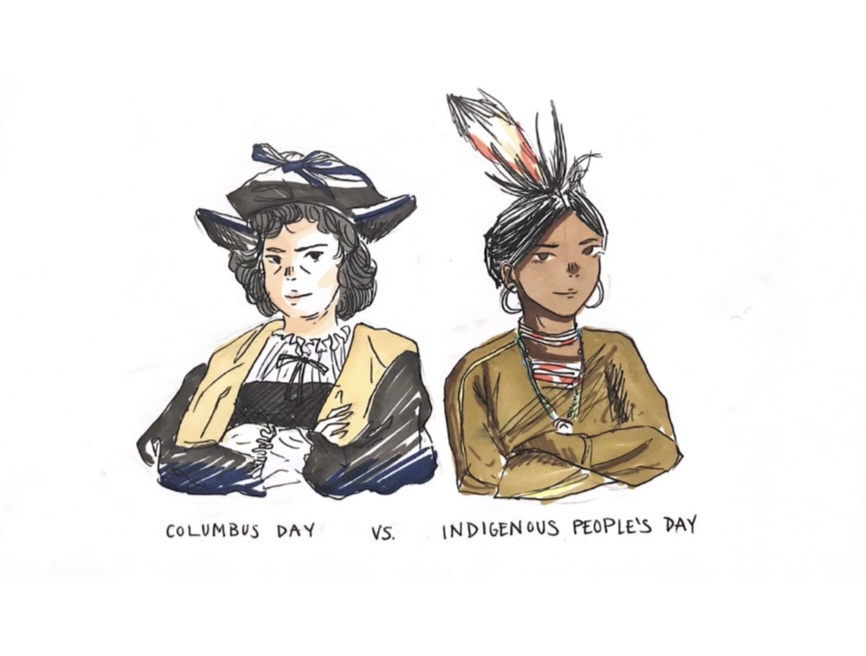On October 12th, 1492, Spanish explorer Christopher Columbus landed on San Salvador. As the legend goes, Columbus was the first person to discover the Americas and helped pave the way for the United States, the first modern democracy in the world. This is the heroic story that Columbus Day commemorates.
Contrary to the myths surrounding Columbus’ conquests, this rosy-eyed outlook on U.S. history almost completely neglects the beginning of the genocide of indigenous peoples. As soon as Columbus landed in America, he enslaved, maltreated, and murdered hundreds of thousands of indigenous peoples. Columbus’ actions led Spanish conquistadors, English settlers, and other Europeans to follow his lead, systematically destroying the homes, cultures, and livelihoods of indigenous Americans over centuries.
Although the truth about Columbus is still largely obscured, over the past twenty years, more of Columbus’ cruelty has been uncovered. In 1992, Berkeley, CA had announced October 12th as an Indigenous Peoples’ Day to honor indigenous culture and history and to oppose the traditional Columbus Day. In the last few years, the movement has accelerated and other U.S. cities have started adopting the holiday. In 2017, Newark adopted the holiday. As a result, the controversy over the existence of Columbus Day has flared. Amplified by the Black Lives Matter movement that gained traction earlier this year, Americans have increased their focus on racially fueled abuse on people of color as well as on America’s racist history.
Although many Americans still believe that Columbus Day should be celebrated, most RHS students that were interviewed generally support Indigenous Peoples’ Day. One student believes that “it’s important to make Indigenous Day more known because kids are always being taught of Columbus Day.” She added, “People and heritages who contributed to the First Nations should be thought of more.” Other RHS students agree with this while also condemning Columbus. According to one student, “People shouldn’t ignore that Columbus’s methods were really destructive to the Native Ameicans… [The Government] should change [Columbus Day] to Indigenous Peoples’ Day because Columbus messed up their lifestyle and they deserve recognition anyway.”
In some cases, students are confused about the concept of Indigenous Peoples’ Day. For example, one student confessed, “I think Indigenous Peoples’ Day is a really good idea. But I don’t really know a lot about it. I don’t even know what day is on.”
Some students believe that not only should Columbus Day be replaced with Indigenous Peoples’ Day, but that inadequate history curriculums should also be updated. “Native Americans, as a whole, are ignored way too much,” claimed one student. She continued on, condemning history education in schools. “Schools don’t do enough to actually teach Native American history. It’s really sad that not a lot of people know about Natives compared to white settlers. That’s the reason I don’t really like history, because it’s so whitewashed and one-sided. If most of the U.S. wasn’t white, then I feel like history would be a lot less biased and romanticized.”
But on a positive note, she says, “We’re definitely starting to be more aware of all of this. I won’t be surprised if in the future, Columbus Day is completely replaced [with Indigenous Peoples’ Day].”
Chloe Cho
Staff Writer
Graphic: Kate Minn

